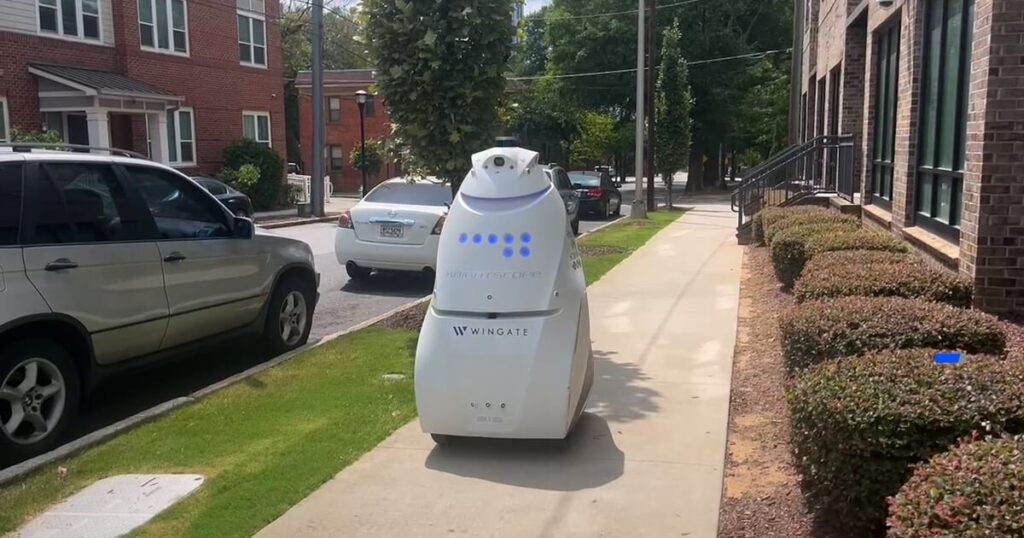Advanced security robots are making their mark in urban areas, with devices now patrolling various Atlanta neighborhoods. These sophisticated robots are equipped with 360-degree high-definition cameras, microphones, and thermal sensors, enabling them to detect unusual temperature changes that could signify fires or unauthorized loitering, as noted by Stacy Stephens, Knightscope’s executive vice president and chief client officer.
The K5 robot, for example, offers robust capabilities: it can recognize both license plates and faces through facial recognition technology and identify mobile devices using wireless signal detection. These features are designed to make neighborhoods safer by providing real-time, actionable intelligence to law enforcement and security personnel.
One noteworthy success story comes from Las Vegas, where a previously high-crime apartment complex saw a significant decrease in criminal activity after implementing the K5 robot in 2020. Local authorities and property managers reported fewer 911 calls, illustrating the robot’s impact on enhancing security.
In Atlanta, robotic security initiatives are gaining traction. At the Mercedes-Benz Stadium, a robotic dog named Benzie is piloted by a human to patrol the area at night. Meanwhile, at the City Lights senior living community on the 400 block of Boulevard, a K5 robot has been on duty for about a month. Sage Hoare, a spokesperson for City Lights, highlighted the robot’s ability to respond autonomously to various security situations.
Residents are slowly getting accustomed to their new robotic neighbor. Henry Evan, a resident, believes the robot will be beneficial. Arturo Lamotta, another resident, mentioned that although he hasn’t personally experienced crime, he feels a greater sense of security with the robot around, especially after hearing about past incidents in the community.
Crime data analyzed by The Atlanta Journal-Constitution shows that the Old Fourth Ward neighborhood, where City Lights is located, has averaged 19 firearm-related crimes each year from 2021 to 2023, underlining the need for enhanced security measures.
Interestingly, these robots don’t just patrol; they communicate as well. They can inform people when a building is closed to the public, helping deter potential criminal activities. Stephens, who co-founded Knightscope after a 25-year career in law enforcement, believes these robots can make criminals think twice about their actions.
However, the implementation of such advanced surveillance technologies raises privacy concerns. Jay Stanley, a senior policy analyst for the ACLU, pointed out that while these robots deter criminal activities, they also monitor the actions of ordinary citizens, which might not sit well with everyone. Stanley cautioned against a future where surveillance robots are ubiquitous, suggesting it could lead to constant monitoring of people’s movements.
Despite these concerns, the presence of human security guards hasn’t diminished. Arturo Lamotta mentioned that patrols by human security personnel continue in the early morning and late evening. Stephens emphasized that these robots are intended to complement existing security efforts, taking over mundane and repetitive tasks to free up human security officers for more strategic and empathetic roles.
As technology continues to evolve, the integration of robots into community security strategies represents a significant shift, aiming to enhance safety while grappling with the balance between security and privacy concerns.


